The International Suicide Prevention Day (September 10th)once again comes with a lot of unanswered questions and the gloom and sadness which many ignore to notice. Those who notice these questions are not ready to acknowledge them. Suicide is not just death of one single person but it’s a combination of a lot of emotions and feelings which are subjected to shock. We are not ready to deal with this shock which is always followed by guilt, and so as common men and women we brush the topic of Suicide aside stating it’s a too personal action and though saddened by the loss, let us leave the dead in peace. But for me every suicide is a pain I carry through, it is a feeling of guilt I accumulate for being on this side of majority who fail to empathize, understand and reach out to those who actually were crying for help with their helpless gesture of ending it all.
Gurudutt was always that question I carry within from the day as a kid I was introduced to his movies. His sensitiveness, his loneliness his constant search and the lingering sadness drew me to him and the movies he made which were autobiographical speak about a lot of those things which cannot be put into words. The pain I feel each time I go through those films brings me more to the topic of Suicide. Why do people give so much pain to one another in the process of living? Is there no other way? Why are we always on the run neglecting our tribe? What are we actually searching for and what do we really achieve after so much of selfishness and power struggle. We are insensitive towards each other, we calculate our moves in life and moving up the ladder towards something we assume as success becomes our sole priority and in the meanwhile the innocent human love, touch, zeal and passion are lost and if we find someone who still retain them within themselves or are trying to keep them as a part of their character, then we as the world bounce on them and create an atmosphere of suffocation and betrayal. They leave because they cannot be among us, they quit because they never wanted to fight those whom they loved and they embrace death because we have not given them a hope that they still have options in life and we never made them feel that we need them.
I do agree that Suicide has many reasons to it. Economic factors, mental health and, disorders all add to the urge but what mostly kills the human race is human betrayal, lack of love and dignity. Living should not be an obligatory thing to the self respected human. In fact it should be a process of experiencing love and togetherness. Humans choose death over life when they experience this emptiness which is the most dangerous disease any living thing can ever be subjected to.
Gurudutt who is now ranked as the famous director of Indian cinema committed suicide when he was just 39. He survived two suicide attempts before the last attempt he made on October 10th 1964. When a friend asked him why he attempted it after he survived his first attempt, he answered I AM NOT DISSATISFIED WITH LIFE, I AM DISSATISFIED WITHIN MYSELF” That’s how this biography starts. I have read almost all the books I came across written by friends, film lovers on Gurudutt but this book titled GURUDUTT – AN UNFINISHED STORY written by Yasser Usman, was a true attempt to get into the man and understand him, his pain and his dissatisfaction. When he had to demolish his dream house as he was forced to believe that it was haunted and that was why his marriage was not working the way he and Geeta dutt wanted to, he sadly commented to Bimal mitra “Ghar na hone ki takleef se, ghar hone ki takleef aur bhayankar hoti hai”
The book in detail describes his brilliance in film making and his thirst for perfection. He is known today as an actor who used eyes to convey his soul to the audience. All through his life Gurudutt was trying to communicate the pain he faced internally but he did not have the right audience. As a film maker he wanted to be understood, accepted and appreciated and he tried his best. Actually Gurudutt used to wear thick eyeglasses due to poor eyesight. In front of the camera without his glasses he could barely see but he added magic to his eyes to communicate with his audience. But did anyone reach to the core of his heart and gave him the trust he wanted ?
“Can someone believe that the famous climax sequence in Pyaasa, he shot one-hundred and four takes” writes Yaseer Usman, that was his thirst for perfection. People found it hard to work with him because when compared to the reels he shot for his films, the reels he used for rehearsals and which were dumped were in a larger quantity. So much of money, time and effort went wasted for that right scene and the right moment. But he kept on trying and always desired the best. This left him unhappy and he suffered with insomnia. This resulted in his experiments with sleeping pills, mostly mixing them in his whiskey.
His first suicide attempt came when he was 31 in 1956 during the making of Pyaasa. No one knew the exact reason which tempted him to swallow a copious amount of opium. Many times he would call his friends and sister saying that he needs to ventilate but never came out with the things that were bothering him. None in the family also really knew if the attempt to end his life was due to a mood disorder, philosophical reasons or just poor impulse control. Neither did they seek professional help after he was discharged from the hospital though the suicide attempt shocked everyone. With the shooting of Pyaasa, Gurudutt too found little time to address what happened. After the pain he and his family went through, “THEY POSSIBLY ACCEPTED THE COMMON YET HIGHLY INACCURATE BELIEF THAT IT WAS ON IMPULSE AND PEOPLE WHO SURVIVE A PAINFUL SUICIDE ATTEMPT ARE UNLIKELY TO TRY AGAIN” But more often the opposite becomes true. This is a very important fact which was neglected by everyone around. Had Gurudutt would have been given medical intervention, or parallel support may be death would have been postponed.
All the people Gurudutt nurtured in the later years proved their talent as a team and also individually. For all the technical pains Gurudutt endured to make Kagaz ke Phool which was then a disaster, today it stands as one of the best films from India. V.K. Murthy was recognized for his camara work and in 2010 after fifty one years of Kaagaz ke phool he was honored with the Dada sahib Phalke Award and remains as the only technical talent to win a Phalke Award-the highest award in Cinema in India. But the day Kaagaz ke phool was ranked as a flop movie at the Box office Gurudutt lost his zeal in film making. Later he ghost directed the movies he produced and left the major part of direction to his friend Abrar Alvi. He later never went behind the camera and only acted. The films he acted in those times show us a lost man defeated and dejected. Devanand quotes “Wo cheez unme khatam ho gayi thi”
The author writes “Remembering the debacle of Kaagaz ke Phool, Johny Walker would say Kaagaz Ke Phool ke premier mein public ne humko joote-chappal marker nikala. Public said, What a disastrous film you’ve made. Guru Dutt came out of the theatre and said. “ I can’t direct anymore” And he never did. He lost his confidence after that. And after that Guru Dutt went into a shell. After Kaagaz ke Phool he made Chaudhvi ka Chand, which was directed by M. Sadiq. Gurudutt directed the songs as he was known as a master director when it comes to songs. The movie, which has an illogical story was embraced by the audience and it remains an all time hit. Gurudutt had recurred the losses he had to face with the flop of Kagaz ke phool but what he lost was gone internally was gone forever. The tragedy is, among all the films he made on his banner, he only produced one flop film Kagaz Ke Phool and he never forgot that failure because it was a part of him and his life. People rejecting it brutally had a very bad impact on his thought process. All through his life Gurudutt was caught between two wishes. The author Yaseer Usman says “he wanted to rule the world of movies and at the same time he wanted to run away from this world”
In an essay titled “Classics and Cash’, Gurudutt wrote, In the formula ridden film world of ours, one who ventures to go out of the beaten track is condemned to the definition which Mathew Arnold used for Shelly…..”An angel beating his wings in a void”
Geeta dutt was a star when she married Gurudutt during his struggling days and people blamed him for marrying Geeta for money and status. But once Geeta has fallen into the domestic circumstances her opportunities became less. With her constant domestic struggles, she was absent to rehearsals and unavailable to music directors on their prescribed dates. Slowly the offers stopped coming. Geeta also got into alcohol and sleeping pills and entered her own world of seclusion. Gurudutt tried to make a film with her in a lead role called Gauri. But it got shelved due to their personal differences and this hurt both of them deeply. When Waheeda Rehman’s brother in law Rauf made an announcement after the Friday namaz at the mosque that Gurudutt is marrying Waheeda and decided to become a Muslim, Guru dutt was in a panic. He was badly hurt. He was a very private man, an introvert who never discussed his personal things in public. After this incident, he was a lost man and one night during the shooting of Sahib Biwi aur Ghulam, Gurudutt swallowed thirty eight sleeping pills. It was his second attempt at Suicide.
“Here a Psychiatrist was called but he charged Rs. 500 for a visit. “My brother Atma laughed that he is just talking with Guru and he is so expensive. We never called him again” says Lalita Lajmi. This was another grave mistake which happened as none around Gurudutt actually understood the intensity of the problem. The first person Gurtudutt asked for, after coming into consciousness after four days was Geeta Dutt. This suicide attempt was pre planned. Guru dutt had written a letter for his brother Atmaram and asked him to take care of Geeta and his Kids and look after the studio and Guru Dutt Films. After these two attempts too, Guruduttt never talked about it with his family and no medical intervention ever happened.
Gurudutt had many times experimented with sleeping pills. Screen writer Nabendu Ghosh talks about a doctor A.J. Ribero and says that during his visit to Guru dutt’s Pali house once he found the doctor trying hard to bring Guru dutt into consciousness after an over dosage of sleeping pills. Another day Ghosh says that he found the same doctor attending Geeta dutt because this time she took a lot of sleeping pills. Once when Bimal mitra was with Guru dutt for the writing of Sahib Biwi aur Ghulam in Hindi from Bengali, he heard that Geeta had tried to end her life by cutting her wrist veins with a blade. When Mitra tried to discuss with Guru dutt about his heavy dependence of alcohol and sleeping pills and the side effects he sadly stated “What will happen? I will die. Listen, even if I die nobody will mind. Is there anyone objecting to my death? If I feel tortured, is it going to harm anyone?
Many times Gurudutt attempted to say something to his close friends. Yaseer Usman writes “At the midnight of 18 september, an emotionally upset Guru Dutt walked into Abrar’s house. He left at five in the morning wanting to say something all night. But he did not” Many times he called his sister home telling her that he needed to talk to her but he never opened to her and remained silent in her presence. And than a third and a final attempt took him away..
Geeta dutt was shattered and kept on blaming herself for Guru’s death. She suffered a nervous breakdown,, during which she failed to recognize even her own children. Later she became a chronic alcoholic and the chances of a revival became bleak.
None from the Hindi film industry ever remembered the genius until in the late seventies and eighties a French writer and critic Henri Micciollo, published a wonderful study on Guru Dutts’ Cinema. This brought his work back into life and people started writing about him, analyzing his films and acknowledging the genius in his work. Though he made commercially successful films he was never interviewed directly once while alive. His genius shot back into life with the French man’s study and then people started looking at his work differently. Gurudutt the film maker was then taken seriously and was critically acclaimed. THE WAYS OF THE WORLD.
Yaseer Usman brings this book as an analysis about the life of the genius, the man who was not taken seriously as long as he was alive, an artist misunderstood .His struggle with the world and the relationships around were never intervened medically or emotionally. He remained an introvert who was never approached in the right way, who was always a loner and was made to believe that he was a misfit in this intelligent world. This biography brings out the trauma of a depressed human, the constant pain he endured and his need for help which was never given due to human ignorance, innocence, and the failure to acknowledge his trauma as a medical condition. He was constantly communicating to people around, through his work but it went over the heads of people, who could not understand him, his work or his thirst. Now when the generation has understood his genius, his maestro of artistic expression, he has long gone and left an era of tragedy behind.
The book ends with his death. But what happened later is another subject for discussion. Geeta dutt died in 1972 with liver sclerosis. She could not get back to her normal life and was in a shock and poor health all through. Gurudutt and his eldest Son Tarun dutt share the same birthday. Tarun dutt committed suicide in 1989 just like his father. He was just 35. Arun dutt who tried to bring his father’s legacy to life and who was constantly organizing Gurudutt film festivals in his later years became an alcoholic and drank himself to death. He died with multiple organ failure and cardiac arrest due to prolonged and intense intake of alcohol. Both the sons were burdened with their family’s tragedy and things were never the same for them.
Gurudutt’s daughter Nina is the only surviving child of this doomed couple. Does Suicide run in a family? No….. we cannot jump into conclusions as nothing has been scientifically proved. But it is not an easy trauma for the family of a suicide victim to move on. They are affected and burdened in life and things can never be the same to them. The guilt, the trauma, the haunting questions, the ideas of people around, the assumptions of the world are all to be faced by the survivors of suicide and it’s not easy to live with all these normally and build a future. When life puts this family to its harsh testing then it’s an easy thing for them to attempt the same their loved one has done before. Gurudutt’s life and the tragedy which kept recurring in the family has to be studied. Had Gurudutt known that his pain would be passed to his loved ones would he had done what he did ? No… he would have endured…. He would have lived… he would definitely have suffered life, than passing on his suffering………
SUICIDE IS NOT A WISH TO DIE…. IT’S A CRY FOR HELP — Plz Understand…..
रहने को सदा दहर में आता नहीं कोई
तुम जैसे गए ऐसे भी जाता नहीं कोई
डरता हूँ कहीं ख़ुश्क न हो जाए समुन्दर
राख अपनी कभी आप बहाता नहीं कोई
इक बार तो ख़ुद मौत भी घबरा गई होगी
यूँ मौत को सीने से लगाता नहीं कोई
माना कि उजालों ने तुम्हें दाग़ दिए थे
बे-रात ढले शम्अ बुझाता नहीं कोई
साक़ी से गिला था तुम्हें मय-ख़ाने से शिकवा
अब ज़हर से भी प्यास बुझाता नहीं कोई
हर सुब्ह हिला देता था ज़ंजीर ज़माना
क्यूँ आज दिवाने को जगाता नहीं कोई
अर्थी तो उठा लेते हैं सब अश्क बहा के
नाज़-ए-दिल-ए-बेताब उठाता नहीं कोई
(A Tribute to Gurudutt by Kaifi Azmi)
NOTE : There are help lines ready to talk to people who are lonely, depressed and suicidal, Before you decide to take the final step please call Roshni help line Hyderabad (India)
040 66202000 or 040 66202001.. or mail to roshnihelp@gmail.com
*

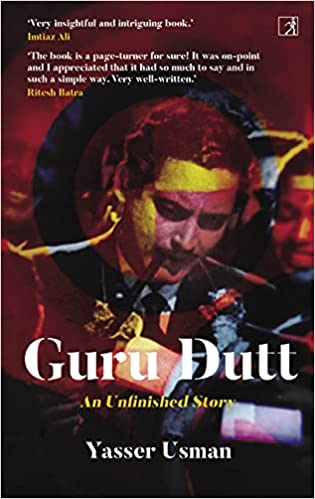

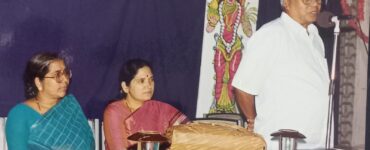
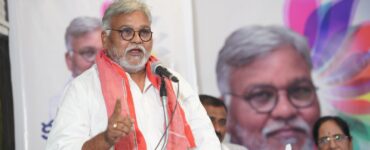
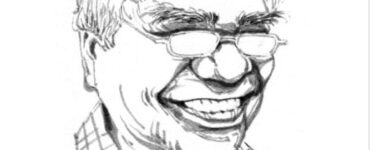
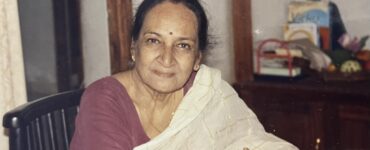


Hi.. The last paragraph summarizes the whole book and the causes for attempting the extreme. If one individual, who can give patient hearing to another’s personal problems, is available then the whole tragic events would have been avoided. Nice review.
This autobiography and the tribute to Gurudutt by Jyothi is beyond any words to express how well it is analyzed.
Few paragraphs that held my eyes and heart to is
1. The last 5 lines of 2nd paragraph “they leave because…………………that we need them.
2. “Even if I die, nobody will mind”
3. ” Had Gurudutt known that his pain would be passed on. ………….than passing on his suffering”.
Hats off to Jyothi for bringing the pain of the person who dies of suicide, the families sufferings etc
for every ones notice.
Thank you Jyothi once again.
గురుదత్ ఆత్మహత్య గురించి చాల బాగా విశ్లేషించారు జ్యోతి గారు ! కాని చివరి పేరాగ్రాఫ్ లో మీరు, తన బాధ తనను ప్రేమించేవారికి కూడా కలుగుతుందని గురుదత్ ముందే ఉహించివుంటే, అతను ఆ బాధను భరించివుండేవాడే కాని ఆత్మహత్య చేసుకుని ఉండేవాడు కాదని అన్నారు. కాని గురుదత్తే కాదు, ఏ ఆత్మహత్య చేసుకున్న వాడికైనా ముందే తెలుసు తనను ప్రేమించే వాళ్ళు తన ఈ చర్య వల్ల ఎంత బాధ పడతారో అని, తన మీద ఆధార పడ్డ వారి జీవితాలు ఎంత అస్తవ్యస్తమౌతాయో అని. కాని విషాదం ఏమిటంటే ఆ టైములో ఇవేమి గుర్తుకు రావు ! ఒక వేళ గుర్తుకు వస్తే, ఆత్మ హత్య చేసుకోలేరు !